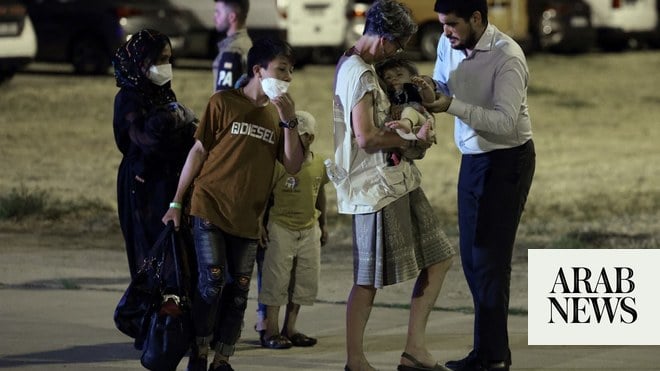
Unnamed jurist faces threats from Taliban despite High Court in London ruling in his favor
In another case, British defense ministry asked Afghan interpreter not to make public his family had been in hiding for 8 months
LONDON: A judge in Afghanistan has said he feels “backstabbed” by the UK for not evacuating him from the country, as he faces the possibility of being killed if his application for a visa is unsuccessful.
The judge, whose identity is being kept secret, is currently in hiding in Afghanistan, having prosecuted members of the Taliban, Daesh, the Haqqani network and Al-Qaeda in the country before it was taken over by the Taliban in August last year.
The High Court in London ruled he should be granted asylum in the UK in April, but the government said he had not been an official employee of the British state because the court he worked for was an Afghan institution, and that he does not meet the criteria to be relocated to the UK along with members of his family, who are also in hiding in separate locations.
To further his application, he would need to leave Afghanistan and reach a UK visa-processing center in Pakistan for biometric data submission, but would face deportation back to his country if the request was then rejected.
The High Court ruling on the matter said that were this to happen, it would place the judge and his family “at real and immediate risk of death.”
The judge told the Guardian: “I am shocked by the government’s decision to refuse to relocate me to the UK. I was once considered an important ally, given security due to the imminent threat I faced and awarded certificates of appreciation for making material contribution to the UK and allies’ counter-terrorism mission in Afghanistan.
“I do not regret serving justice upon those who killed innocent people including UK government personnel, but I am heartbroken, abandoned and feel backstabbed by the government for refusing to relocate me in the UK,” he said via an intermediary. “I plead with them to save my life and the lives of my family.”
Lord Carlile and Lord Anderson, former independent reviewers of terrorism legislation in the UK, wrote to the Home Office on April 15, asking it to reconsider the decision.
“The courageous acceptance by judges of the responsibility for incorruptible trial of terrorists … made an important contribution to the lives of Afghans and to international counter-terrorism efforts,” they said in their letter.
In a separate case, the UK Ministry of Defence urged a relocated Afghan interpreter, who worked for British forces, not to make public that it had failed to bring his parents and brothers from Afghanistan to the UK after eight months in hiding.
A ministry letter sent on April 26 admitted to the interpreter, who was badly injured whilst serving in his home country, that officials had not yet been able to confirm the eligibility of his family for the Afghan resettlement program.
A ministry spokesperson told the Guardian: “We recognise the challenging circumstances faced by Afghans applying to resettle in the UK through the Afghan relocation and assistance policy scheme and are processing applications as quickly as possible.
“To date we have relocated over 9,000 applicants and their dependents to the UK. The scheme remains open and is not time limited, and we are determined to continue with this work.”












